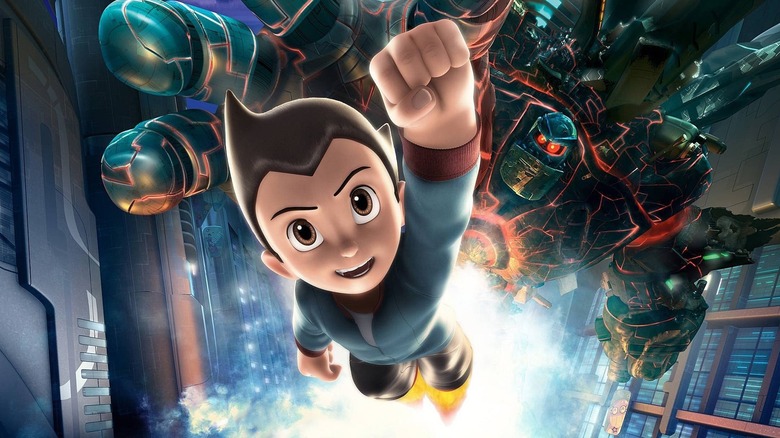
Summit Entertainment
Osamu Tezuka reshaped Japanese pop culture with his manga "Astro Boy." In a future world, Japanese science minister Dr. Tenma loses his son Tobio in a car accident. He recreates Tobio as an android, Astro (known as Atom in the original Japanese). The manga is a futuristic reimagining of "Pinocchio" that becomes a superhero story.
You can trace Japan's love affair with robots to "Astro Boy" — modern mecha and shonen manga/anime wouldn't exist without it. Despite being foundational in Japan, Astro Boy isn't much of an icon in the United States. One attempt to import him, a 2009 CGI animated "Astro Boy" picture from Imagi Animation Studios, failed and left Imagi underwater.
Imagi was founded in Hong Kong in 2000, first producing the 2002 CGI cartoon series "Zentrix." In 2007, they secured a three-picture distribution deal with Warner Bros — the first fruit of that deal was the 2007 animated "TMNT" film. "TMNT" was a success, so Imagi moved onto picture no. 2: "Astro Boy."
The movie was directed by David Bowers, the co-director of Dreamworks claymation film "Flushed Away," already not one of that studio's best films. (Since "Astro Boy" failed, Bowers has only directed live-action "Diary of a Wimpy Kid" films.) The overqualified voice cast includes Freddie Highmore, Bill Nighy, the late Donald Sutherland, and Nicolas Cage as Dr. Tenma.
"Astro Boy" is reported to have cost $65 million, but only took in $42 million at the box office when it premiered in October 2009. By February 2010, Imagi had filed for bankruptcy. Does "Astro Boy" deserve a second chance? Is it a forgotten masterpiece awaiting reappraisal? Nope, audiences had it right on the first call with this one.
2009's Astro Boy failed to recapture the Tezuka magic
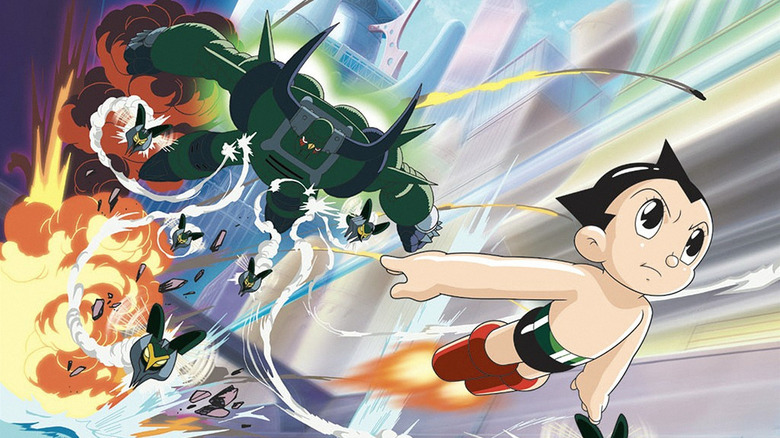
Tezuka Productions
The 2009 "Astro Boy" makes sweeping changes to the source material, likely in the name of a more "universal" film. The character names are Americanized; Tobio becomes Toby, Umataro Tenma becomes Bill Tenma, and Dr. Ochanomizu becomes Dr. Elefun. The setting is also changed from 21st century Japan to a post-apocalyptic future, where the rich live on the floating "Metro City" above the polluted surface. (This all feels closer to "WALL-E" and "Battle Angel Alita" than "Astro Boy.")
The script fuels itself with broad kids movie archetypes, and like Imagi's other films, the CGI is drab and primitive. (The tactility of "Astro Boy" is on-par with "Toy Story," a movie fourteen years older.) The flat animation waters down Tezuka's distinctive character designs; compare "Astro Boy" with 2001's underrated anime film "Metropolis," which stunningly brought his world into 2-D animation.
"Astro Boy" does have one truly rare feature — a phoned-in Nicolas Cage performance. This man would go on to give some of the rawest on=screen performances of grief I've ever seen in "Mandy" and "Pig." As Tenma, he's only going through the motions.
Basically, as far as reimagining the Mighty Atom goes, Imagi's "Astro Boy" is no "Pluto." Drawn by Naoki Urasawa, "Pluto" retold "Astro Boy" arc "The Greatest Robot In The World" as a cyber-noir detective story — read my review of "Pluto" here. (And yes, the Dr. Tenma in Urasawa's horror-thriller manga "Monster" is named after the one in "Astro Boy.")
Due to the failure of "Astro Boy," Imagi's plans for more silver screen manga/anime adaptations were left unrealized. We should probably be thankful that they were.
Astro Boy was the last Imagi Studios movie
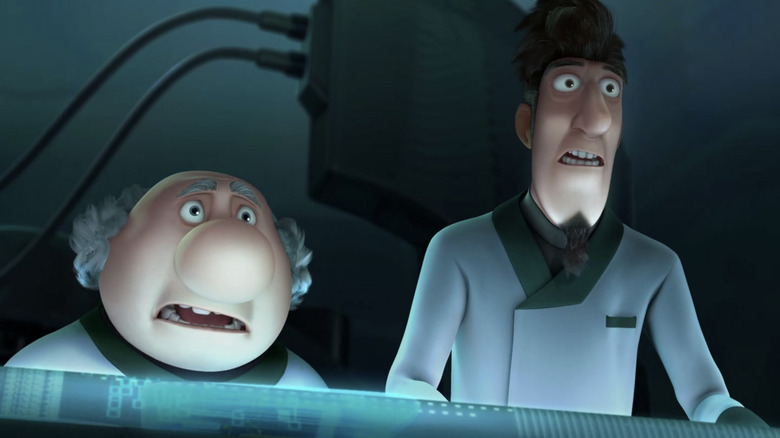
Summit Entertainment
"Astro Boy" has an open ending, with Astro flying off to face an alien monster that came out of nowhere to attack Metro City. Obviously, no sequel followed, but the film ends with room for more. While "Astro Boy" was in production, Imagi already had their next two films in the works. One would be "Gatchaman," an adaptation of the 1970s anime about a five-person "science ninja" superhero team. ("Gatchaman" is the original "Super Sentai," aka the original Japanese version of the show Americans know as "Power Rangers.") Imagi's "Gatchaman" was far enough along for a two minute teaser to be released (see below). When the studio went under, though, the film went too.
Imagi was also planning "T28," an adaptation of the other OG Japanese robot franchise: Mitsuteru Yokoyama's manga "Tetsujin-28," about the son of a scientist who wields a remote-controlled robot. (The series was released as "Gigantor" in the U.S.) Like "Gatchaman," a teaser is all that came of "T28."
The demo reel of former Imagi animator Mak Ching Lok also indicates the studio may have wanted to adapt "Trigun," Yasuhiro Nightow's space western manga/anime. The reel includes an unfinished and uncolored segment of "Trigun" hero Vash The Stampede sauntering up to a bar and asking for a drink refill. No other details of any potential "Trigun" movie from Imagi have emerged.
In 2023, Studio Orange produced a new "Trigun" anime — "Trigun: Stampede" — that renders Nightow's world with 3-D CGI animation. On that alone, Imagi was ahead of its time. With "Astro Boy," they were not.

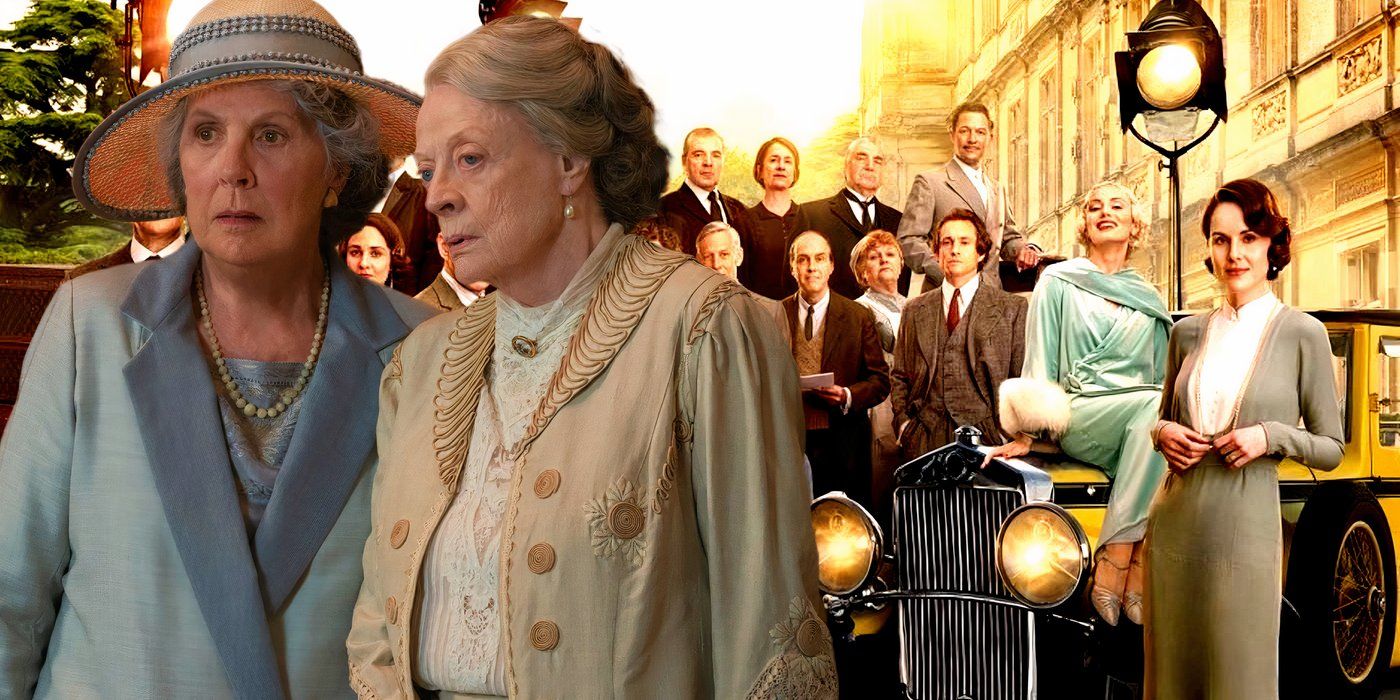
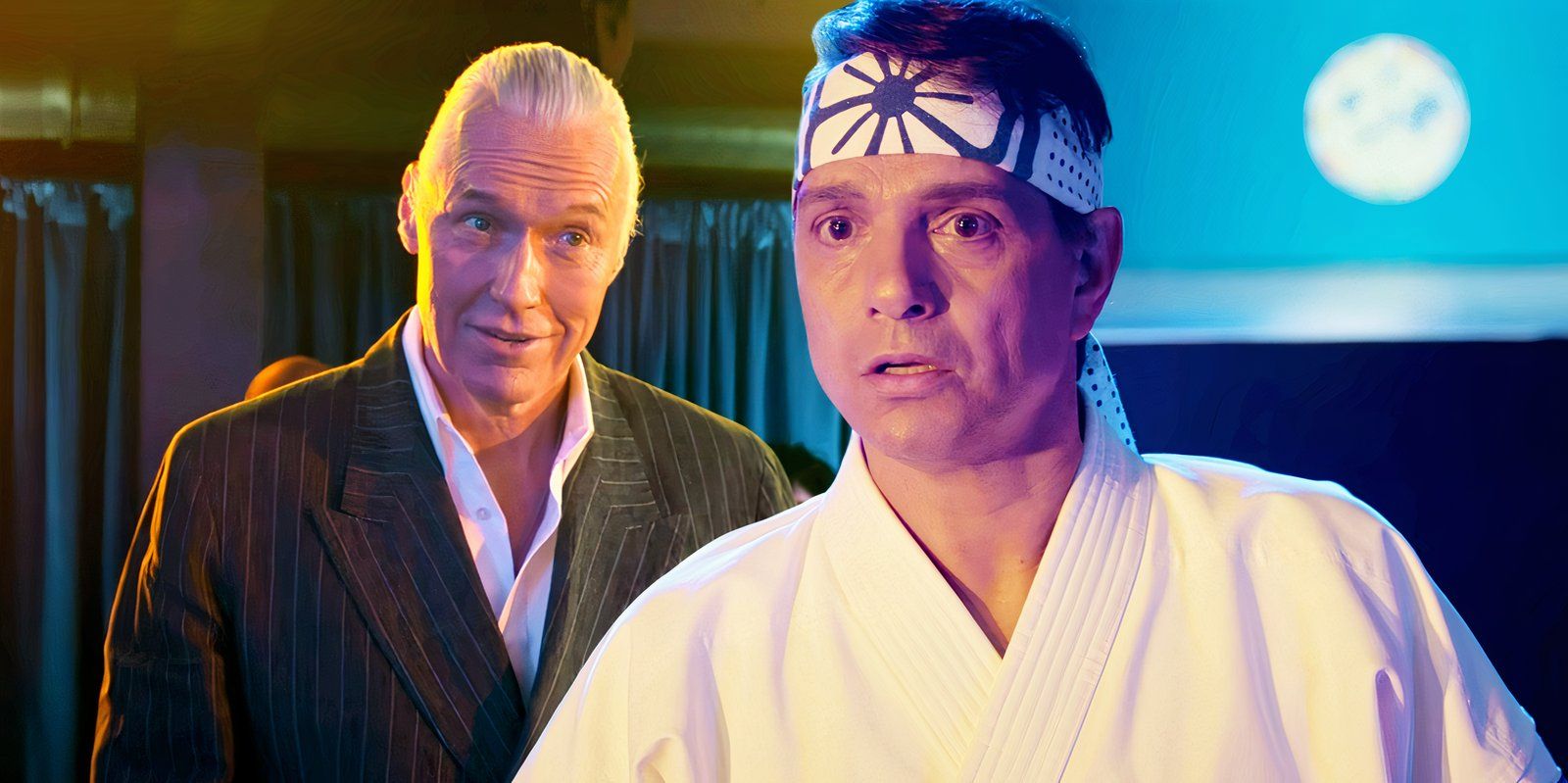






 English (US) ·
English (US) ·